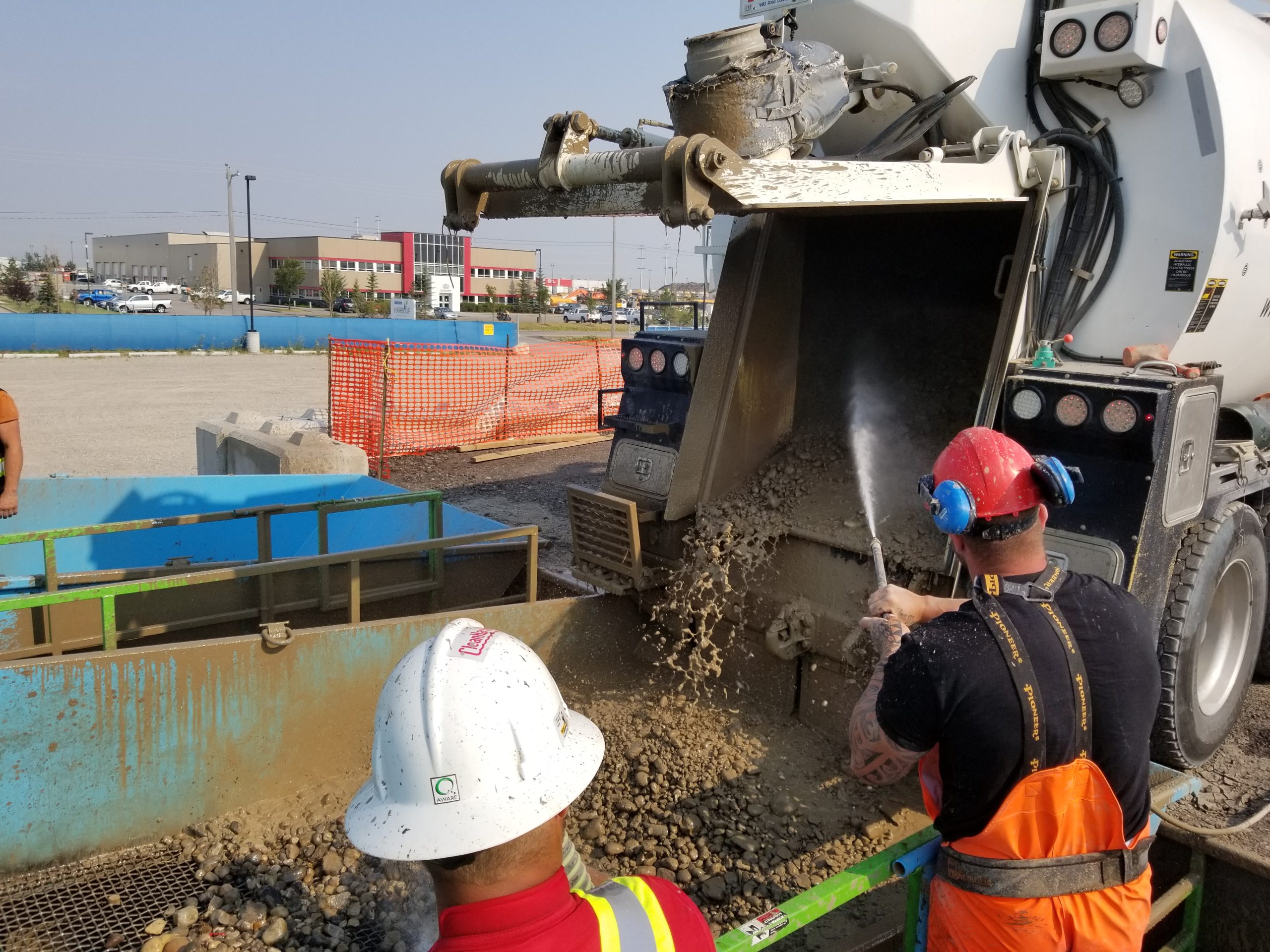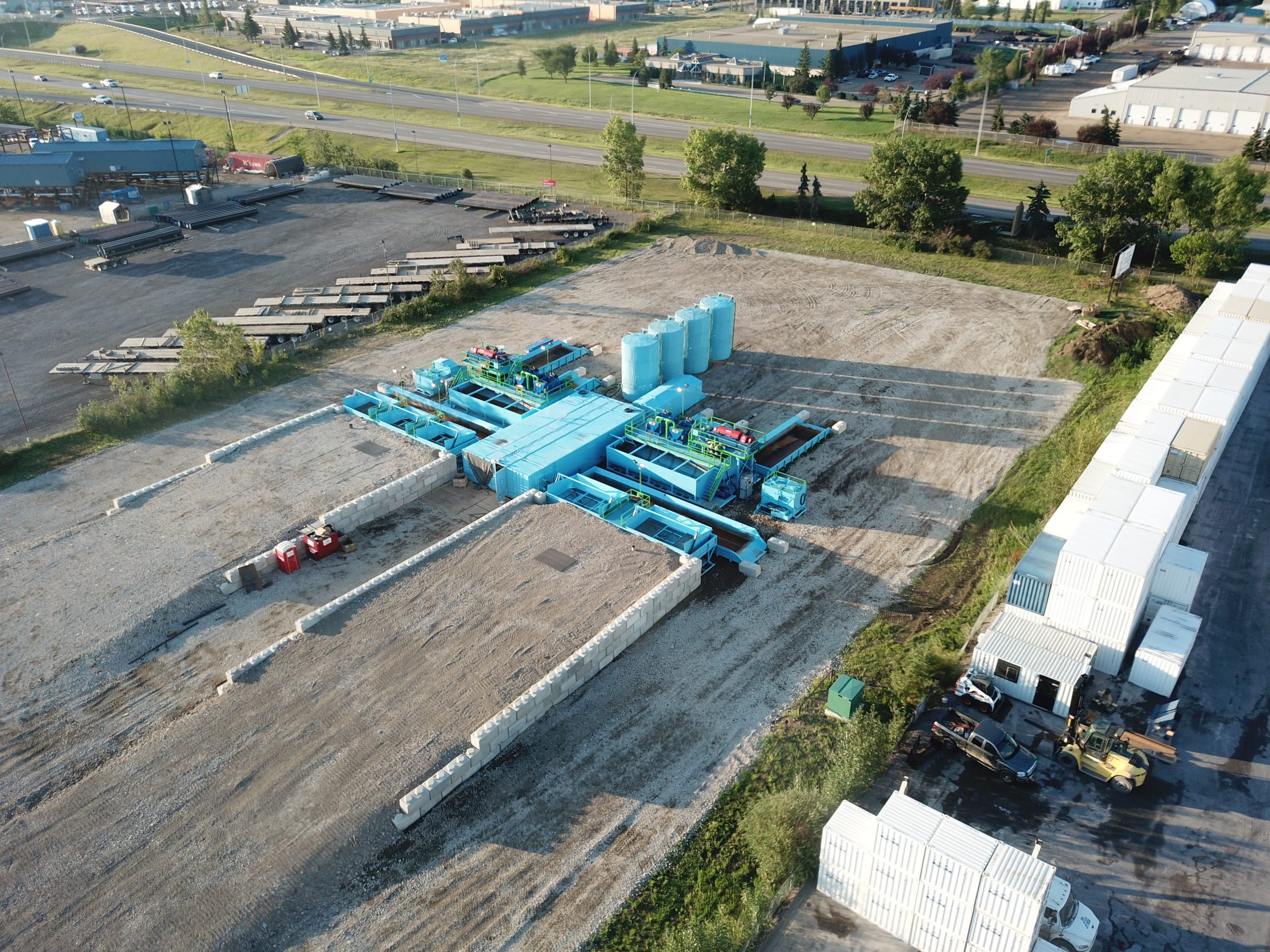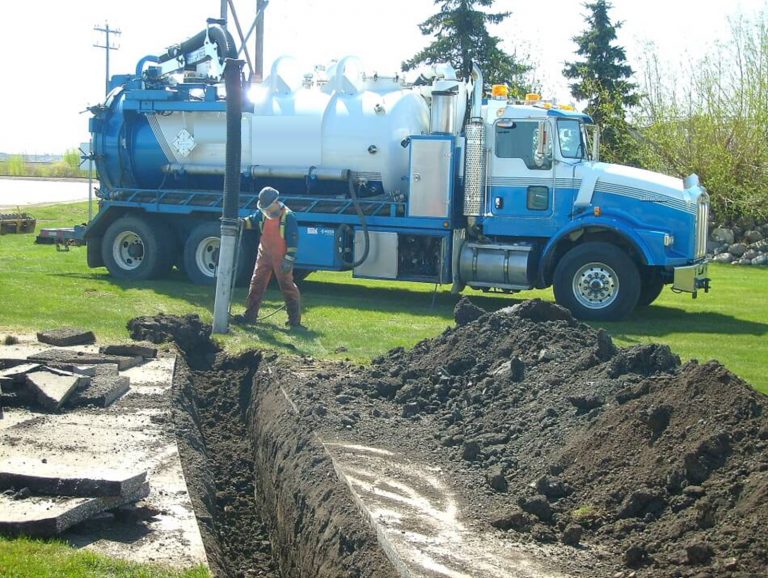Harbour Environmental knows a thing or two about innovation. This Alberta-based company is one of the first in Canada to separate hydro-vac slurry—a mixture of gravel, sand, water, and other minerals—into reusable byproducts.
Hydro-vac excavation blasts high-pressure water to remove soil for subsurface construction, creating a slurry of various materials. Harbour Environmental’s technology sorts and recycles these materials into water, backfill for industrial sites, or gravel for dirt bike tracks.
As Western Canada’s industry leader, Harbour is always looking for ways to improve efficiency. This year, they signed up for ERA’s Strategic Energy Management for Industry (SEMI) program.
“Our Alberta facilities have come a long way in the last eight years, but we saw SEMI as an opportunity to access outside expertise,” said Sean Yaehne, VP of Business Strategy Development. “We’re still a small company, so funding is necessary for us to engage with experts and upgrade our equipment.”
The organization has conducted an energy audit and is working through the program’s facility readiness assessment. At their Calgary plant, their goal is to reduce energy usage and natural gas consumption, saving thousands of dollars from their boiler heating system.
In their older Edmonton facility, Harbour is interested in automating their processes to optimize efficiency. SEMI’s energy audit and capital retrofit funding offers an opportunity to identify and upgrade low-performing equipment.


“Overall, we’d like to reduce energy consumption in our most intensive operations. The SEMI team has been really understanding of that. They’ve taken time to learn our goals and how the program can align with us,” said Yaehne. “We’re an environmental company. We’ll take whatever actions we can to reduce our footprint.”
ERA’s SEMI program provides industrial and manufacturing facilities with knowledge, expertise, and training in energy management. SEMI helps organizations increase profitability by reducing energy costs, growing skills and capacity building, and helping cover the cost of capital retrofits.
This $50 million program, with funding provided by the Government of Alberta and Natural Resources Canada (NRCan), will help the province’s industrial and manufacturing sectors increase competitiveness, improve energy efficiency, and reduce greenhouse gas emissions.

